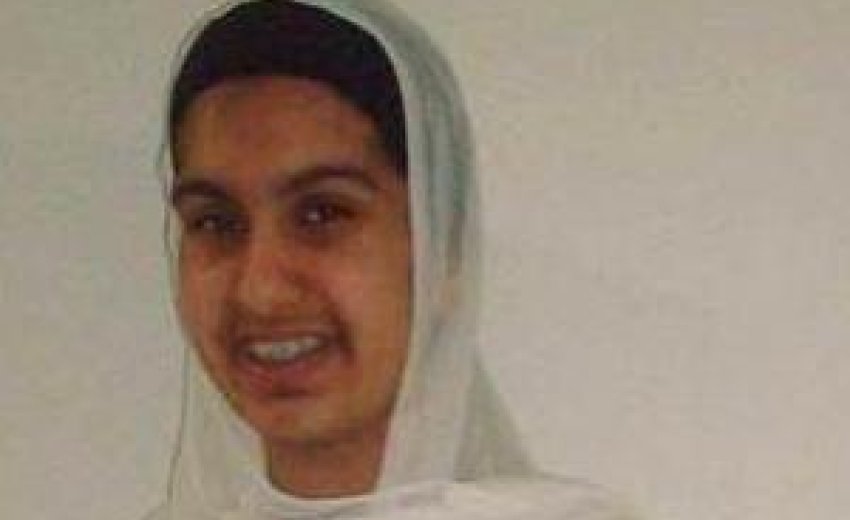Waheguru Ji Ka Khalsa, Waheguru Ji Ki Fateh!
My name is Simran Kaur. I am a fourteen year, grade eight student at Fern Hill School. Being born and raised in Ontario, Canada, I found several levels of diversity around me. I decided to write a short essay on Diversity in Secular Communities comparing Canada to other neighbouring nations.
I recently began making choices as a teenage girl. I chose to start covering my head in alliance with the path of Sikhi. The amount of respect, acceptance and wisdom I received from everyone within my community was exceedingly astonishing. I then began to think about residents of other countries who may not obtain the same amount of approval from people around them. I then figured how fortunate I am to be Canadian. I hope my article stimulates you to reflect on this with an open mind.
 We have become not a melting pot, with all the ingredients blended together, but a beautiful mosaic – each tile uniquely beautiful whilst also merging into the big picture which has a beauty all its own. Different people, different beliefs, different yearnings, different hopes, different dreams.
We have become not a melting pot, with all the ingredients blended together, but a beautiful mosaic – each tile uniquely beautiful whilst also merging into the big picture which has a beauty all its own. Different people, different beliefs, different yearnings, different hopes, different dreams.
This exceptional philosophy by Jimmy Carter expresses the classic Canadian way of comprehending Canada and its thoughtfulness of diversity. “Racism,” “discrimination,” “prejudice” - do these terms apply to a typical Canadian like you and me?
Take a moment to picture Canada… the first series of characteristics that potentially strike you are, multiculturalism, diversity and freedom of speech. A country whose values were firmly set on equality, serenity and liberty has today proven itself to be a wide-ranging nation; a tossed fruit salad perhaps. Casting a glance across the globe, we realize how fortunate we are to be Canadians. As a young Sikh girl belonging to a minority, I particularly acknowledge what Canada has given me and my distinct identity: Acceptance, wisdom, affection and beyond all, a home.
Compare Canada to the United States which allowed its minority citizens to face hate crimes after the September 11 attacks; France which is endeavoring to become a secular nation, Australia which is actively avoiding immigration, and then Afghanistan and Pakistan who are providing shelter to Middle Eastern terrorists. As per fact, between 2001- 2006, Canada admitted 1,109,980 international immigrants. The GTA welcomed about one quarter of all newcomers who totaled to 267,855. Approximately 55,000 foreigners immigrated to Canada annually. With such diversity came abundant amounts of cooperation between communities along with a sense of understanding which eradicated prospective misconceptions. However, outvoted groups, where ever they may be, have always registered stares on their radar screens for their colour, race, language and above all, their uniquely visible identity.
Whether it is the kippah, dastaar (turban), or yarmulke, we as Canadians have been given the independence to pursue our personal, cultural or devout way of life without any tribulations.
Other neighbouring nations have not constantly qualified for a similar sense of understanding by their administrations. Countries such as the United States have strived for a fair, free society regardless of creedf, primarily with regard to Eastern religions. For example, the Oregon court of appeals has at last given its teachers the right to wear religious apparel while teaching. Prior to this, legislation was in place preventing educators from speaking about religion and were unable to wear their normal clothing in school. In 2004, France also declared that no out of caste attire could be worn by students, teachers or any ordinary citizen, like you and me. This recently passed law made France a secular and dogmatic country in the eyes of many.
Even in Canada we have seen similar incidents, but they were short-lived and were driven by unfortunate misunderstandings. Up until the late 1800’s religious articles were shunned even in good old Canada as well. Thriving attempts to spread awareness by everyday citizens, with the support of the Canadian government allowed us to mutually join together and verify ourselves as modern, broad-minded, tolerant beings. “Canadians are the people who learned to live without the bold accents of the natural ego-trippers of other lands.”
